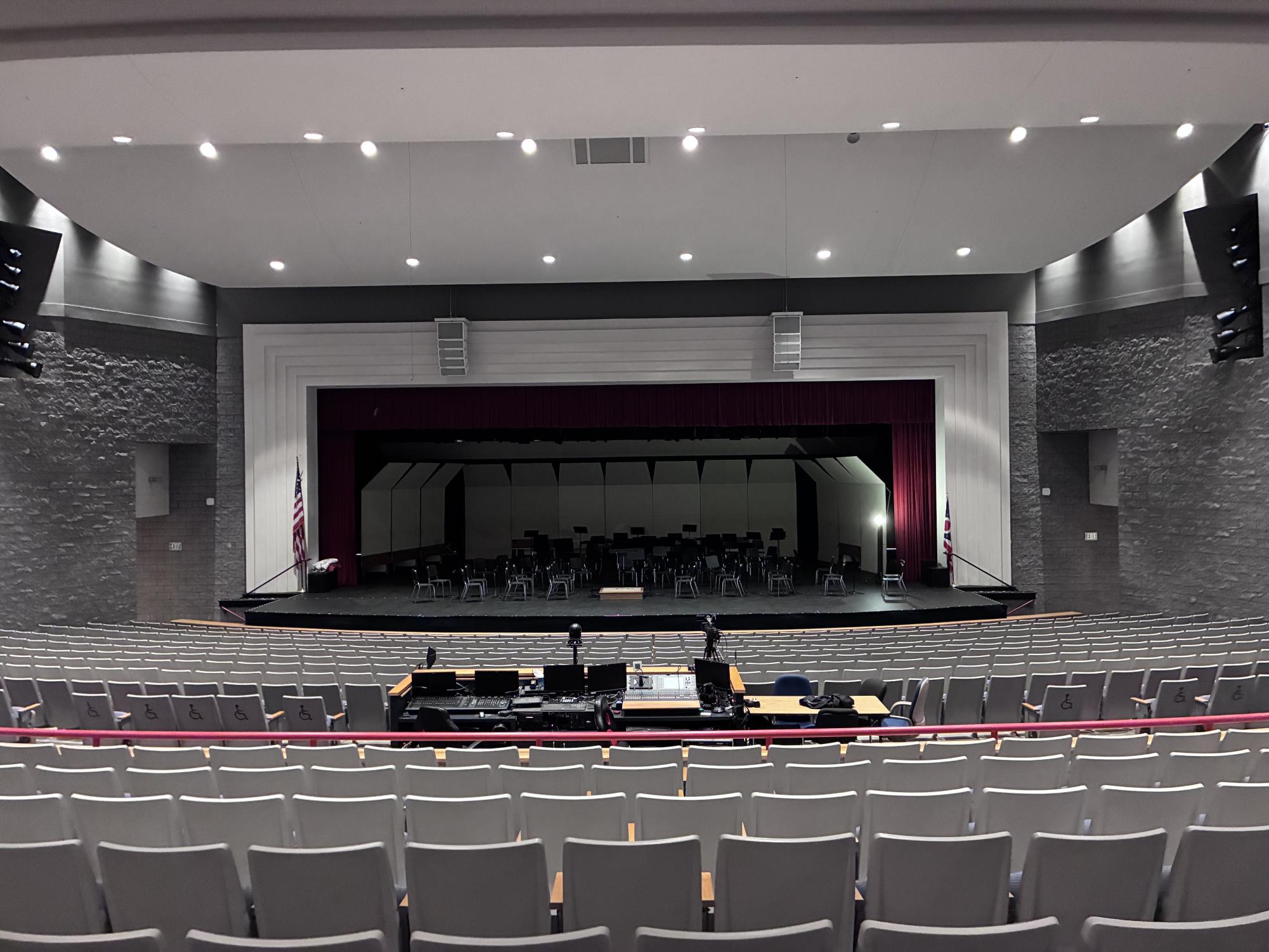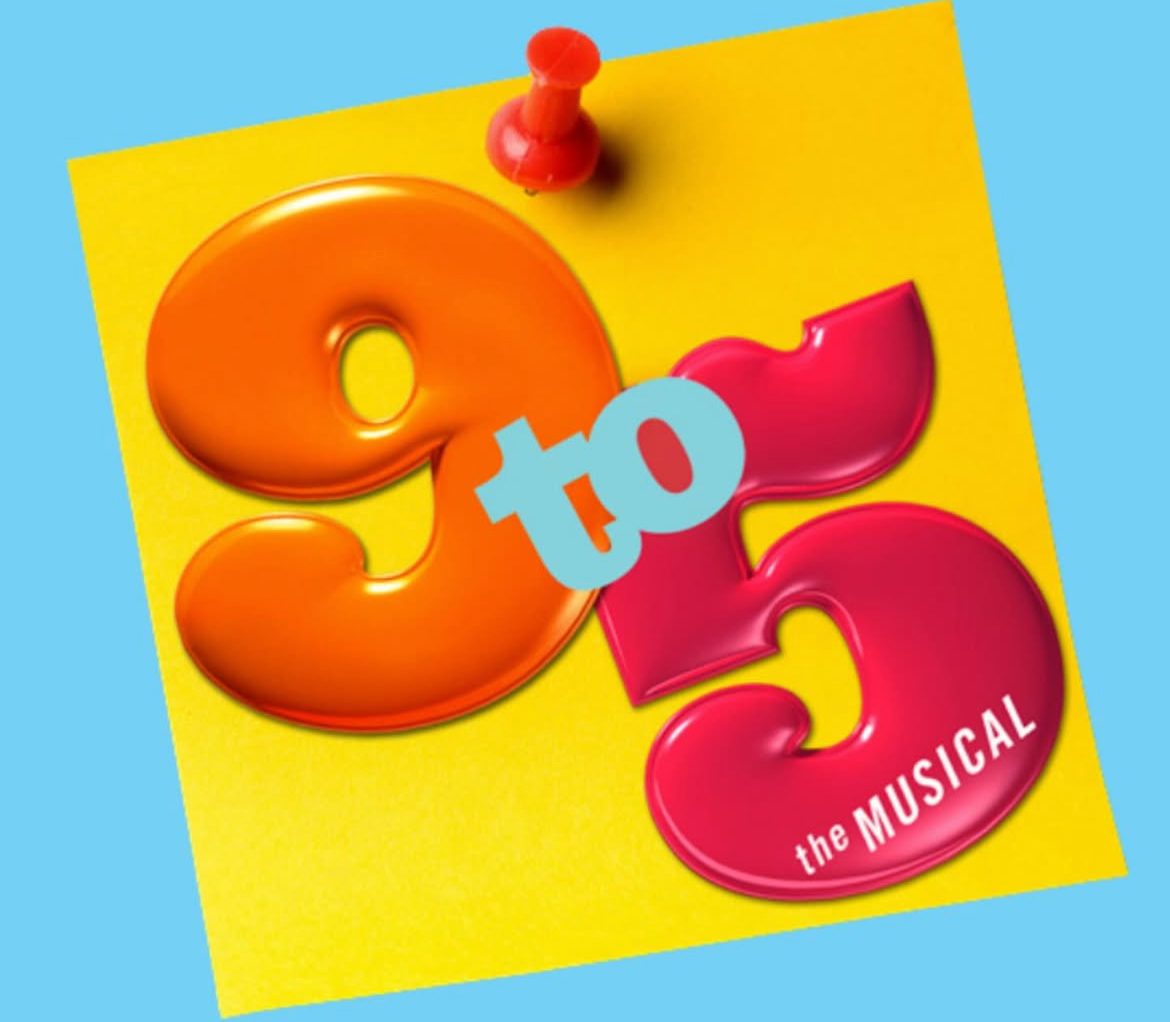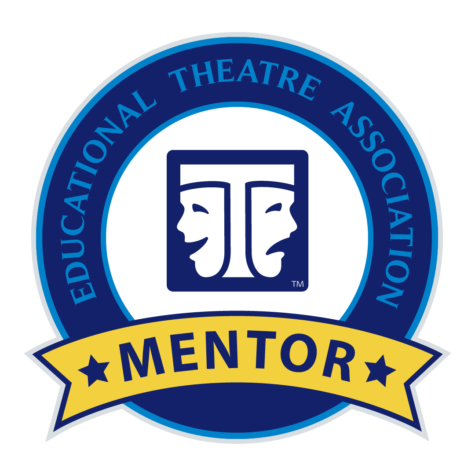
Mentor Theatre program has a lot to offer for students interested in acting, singing, dancing, and more. Unlike most other clubs, theater offers a variety of activities that students can participate in while still contributing to the main production. There are jobs like set construction, lighting, sound boards, costume design, curtain manager, and many others. All these different jobs contribute to making the production run smoothly and can expose students to possible career choices they can pursue in the future.
Collaboration: The Key to a Seamless Production
Theatre involves everyone working together to create a seamless production. If one person makes a minor mistake, it may hinder the production’s progress, but others are there to help. Teamwork helps theatre run smoothly and coherently. The actors are obviously one part of it, but there are also crew members. Some design sets, some design and make costumes. Others also control the lights, sounds, and the curtains. Both actors and crew make a great production. Theatre involves everyone, including the audience. Grabbing the audience’s attention can make the whole show seem real and like they are in the plot, and they can enjoy the captivating experience.
Critical-Thinking: An Essential Skill Learned From Theatre
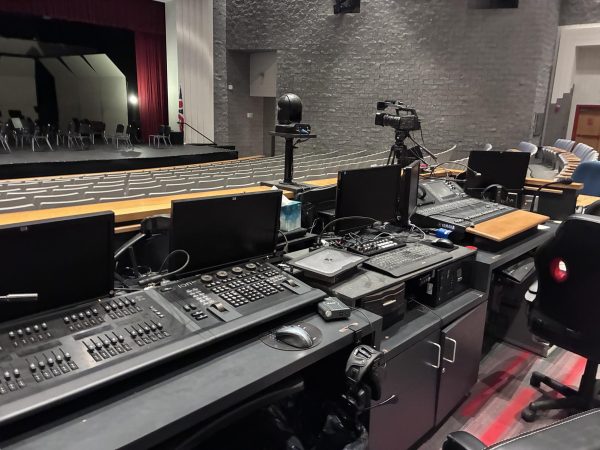
Theatre teaches students to work with others and fix problems on their own. Theatre is fun, but also educational. Working on a team with countless people shows students how to collaborate and include everyone.
“Theatre is necessary for social evolution mainly,” freshman crew member, Aiden Crook, states. “Theatre is a lot of teamwork and problem-solving, especially if someone else messes up.”
Theatre allows students to socialize and create bonds with others over theatre or other common interests, and can help build their social skills and friendships with others. Meeting people who have a common interest can benefit students by helping them learn and understand how to communicate with others and make more friends or connections with peers or bosses in the future.
Communication: A Simple but Crucial Skill for Students
Theatre can also help improve your learning and communication skills. Communication is crucial when students choose to get a job. Students learn to perform in front of hundreds of people and how to solve problems in the moment.
“It is a good way to get to know other people with the same interests as you!” states Alyssa Petric, who is a junior who’s been doing theatre for three years. “Theatre is also a fun and exciting way to express your creativity through the arts!”
Alyssa expanded this thought and said how theatre isn’t necessarily needed, but it can teach students leadership and it can improve their memorizing skills and how to comfortably speak in front of a large audience. Making new friends can help students open up and interact with others, and become more comfortable with talking to people, especially those who have similar interests. Theatre brings many different people together through one common interest, which is extraordinary, and they all work together to make a beautiful production.
Alyssa also stated that theatre can teach students leadership, improve their memorizing skills, and these skills can help students with jobs or careers in the future.
Careers in Theatre
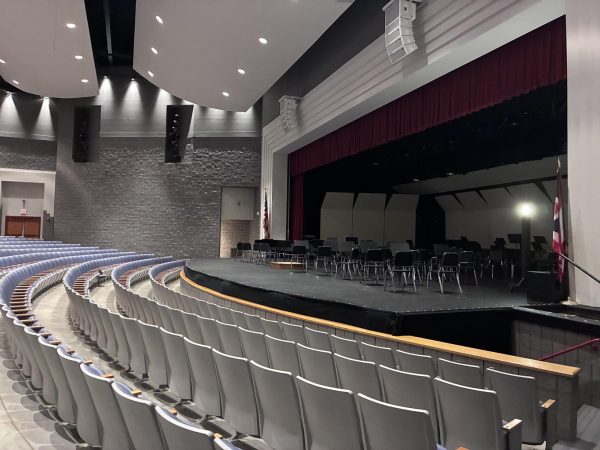
Participating in theatre can open up many doors for future careers. Students may find they enjoy acting, set building/construction/art, light or sound, and many more activities.
“I think theatre is necessary for education since it shows people a new career that they can do in the future,” said a freshman who chose to stay anonymous. They have been participating in theatre for two years, and although they said they don’t think they will choose theater as a career, they’ve made many new friends and memories, and hope to continue it throughout high school.
Many careers stem from theatre that will lead to a successful lifestyle. Theatre/acting (obviously), construction, art, costume design, and architecture are just a few examples of careers that could be discovered as an interest from theatre.
Constructing the Stage for Success
As stated before, a lot goes into producing a show, and it’s a long and tedious process. The crew has to make sets which involve
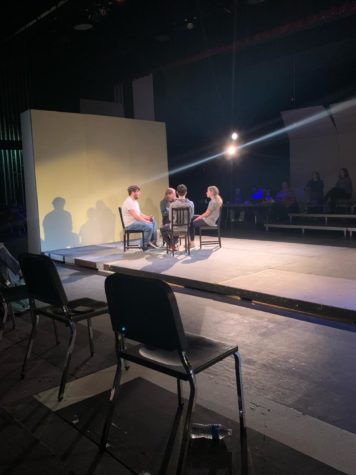
construction, painting, drawing, and deciding where they should be set up. Sets are involved in most, if not all, scenes and lots of scenes are set in the same place, but there are unique props for different scenes.
On the topic of props, crew members have to create props that are unique to the productions and scenes. Other crew members have to create costumes for each (mostly main) character(s), which also takes countless hours of hard work and dedication. Actors also take countless hours and rehearsals to memorize lines and blocking for each scene, and it’s especially hard on main characters or people who have many lines.
Connection Through Theatre
Theatre builds empathy and understanding of others’ perspectives because they place themselves in the characters’ shoes and live their life, aka perform as them. It also connects many different subjects like literature, history, and sometimes even science through the construction of sets and costume design.
“Theatre enriches school culture by bringing together students, teachers, families, and the community to celebrate creativity and achievement,” says Mr. John Greene, the Mentor Theatre director. “Bringing a whole community together over a common interest like theatre is an amazing feat and shows how beautiful theatre can be for small towns and even big cities.”
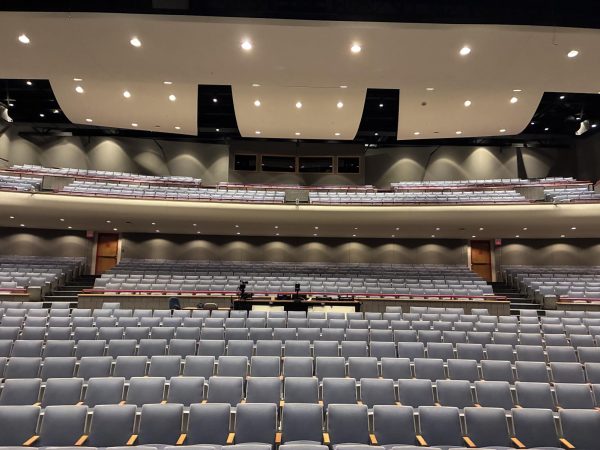
Greene stated how he loves watching his students grow throughout the experience and get more confident in themselves, and involve themselves in their role more.
“I love the moment when the lights come up on opening night and the students realize that all of their hard work has created something bigger than themselves — something that connects with an audience,” Greene states.”
Seeing the curtains opening and the audience for the first time is an amazing feeling and makes students feel amazing and like their loads of effort are worth it, Greene says, especially when the audience reacts positively.
Building a skill like empathy is essential for students to learn to understand what others go through and react accordingly. Theatre also gives students an amazing feeling of accomplishment, which can motivate them to accomplish assignments in the future because they seek that feeling that comes with completing assignments or projects.
Coming Together
To summarize, theatre offers many different opportunities for students to explore and learn about a career path they want to pursue, or even to build communication and learning skills. Theatre provides numerous opportunities for students to explore their interests and preferences. It’s also a place where they can just have fun, express themselves, learn about others, and make new friends.



